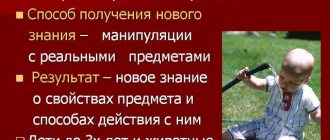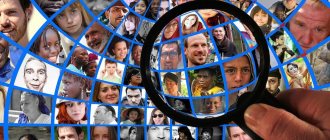The world consists of both humanists and techies. There are few people who would equally combine humanitarian and technical abilities. One type of thinking usually predominates.
Who are you, physicists and lyricists?
In schools, long before entering universities, students take career guidance courses, where they are helped with choosing a future profession. Many teenagers and adults independently search the Internet for information about personality types in order to get to know themselves better. How can one determine what the difference is between humanitarian and technical styles of thinking? Which one do you have? The article will address these and other questions.
What is the difference between a “humanitarian” and a “technical person”
In the early stages of the development of society, people who promoted technical sciences and contributed to scientific and technological progress were of great importance. Their role became increasingly important as society industrialized and reached its peak in the 20th century.
But now we are moving to a fundamentally new stage of development - post-industrial society. The importance of private life, individuality, and humanistic ideals is increasing. Back in the 19th century. advanced philosophers said that only mathematical and natural directions cannot be considered sciences; Humanities should also be highlighted.
There is no longer any doubt that sciences are not only exact and natural, but also humanitarian. These areas require fundamentally different types of thinking.
What subjects are included in the humanities profile?
The school's humanities program focuses on the following subjects:
- Russian language;
- foreign language;
- literature;
- story;
- social science.
Humanitarian disciplines also include jurisprudence, cultural studies, pedagogy and the arts. At the same time, in the modern world, the scope of application of humanitarian knowledge goes far beyond these areas. We will talk below about which humanities specialties are in demand nowadays.
<<Demo access form>>
“Humanitarian” and “techie”: the difference in thinking style
Thinking is the process of human cognitive activity; people with a technical and humanitarian mindset carry out this process in different ways.
Reference!
You cannot choose the type of thinking; it is determined by nature and is associated with which hemisphere of the brain is better developed.
Scientific thinking, which includes mathematical and natural science styles, functions in a certain way:
- Sets patterns and principles of activity.
- Analyzes and evaluates the result.
All thought processes are combined into a single flow with a clear structure; everything unnecessary that does not fit into the “template” is cut off, which allows you to achieve high productivity.
The humanitarian style of thinking presupposes high emotional involvement, thinking in images rather than categories, immersion in the object of study, and not abstraction from it. In a sense, humanitarian thinking is broader and more complex, but that is why it is not always characterized by the desire to obtain a specific result.
Let's summarize!
The difference between a “humanitarian” and a “techie” is that for a “lyricist” completeness, integrity and consistency of thinking, attention to shades of meaning and subjectivity of goals are important, which eliminates the problem of logical contradictions; The “physicist” thinks in categories, his mental processes have a specific goal and are subject to logic.
Creators
A creative way of thinking involves the use of algorithms to find a solution, the principle of creative thinking is based on this. At the same time, a person relies on internal sensations, uses non-standard approaches, which allows him to come up with new things, generate ideas, and be creative. Most often, creators show their talents in the arts - music, painting, handicrafts. But if you study the basics of creative search for solutions, then this mindset can be applied to any, even everyday tasks.
Pros and cons of “humanities”
Each type of thinking has its own advantages and disadvantages, so the competition between “techies” and “humanities” is essentially meaningless. “Physicists” must analyze the situation and understand, and “lyricists” must feel that they are two halves of a single whole, and not rivals to each other, but allies.
The strong qualities of “lyricists” include:
- developed imaginative thinking;
- well-produced, rich oral and written speech;
- as a rule, the ability to carry on a conversation, speak in public, present a new idea to a wide audience;
- developed empathy, which allows you to assess the emotional state of your interlocutor and respond adequately;
- rich fantasy;
- lack of templates;
- flexibility;
- multitasking.
Professionally, these qualities indicate professions related to people and artistic images.
You may also be interested in:
- Salary Level of Russian University Graduates >>
- Top 5 highest paid professions in Germany >>
- Career guidance: top 5 reasons to take it before it’s too late >>
Some features of the humanitarian style of thinking can be regarded as disadvantages:
- poor tolerance to routine work;
- a tendency to inaccuracies and logical inconsistencies, which is the flip side of broad-mindedness;
- lack of desire to necessarily get results.
It is important to understand that these features are not disadvantages per se; they simply indicate which areas of activity are not suitable for a person with a humanitarian style of thinking.
Mathematicians
They are contrasted with the humanities, although this is not entirely correct. Thanks to the flexibility of the mind, you can approach different issues in different ways. Mathematicians are the owners of an analytical mind, which allows you to very accurately put everything into order. They operate with numbers, mathematical calculations, rely on cold logic and do not allow feelings to take over. However, this does not mean a low level of emotional intelligence - rather, on the contrary, they know how to manage emotions so that it does not interfere with problem solving.
Pros and cons of "techies"
The advantages of “techies” seem to be created to compensate for the weaknesses of humanists:
- high level of organization;
- strong logic;
- abstract thinking;
- ability to structure information;
- desire to get results.
The weaknesses of “techies” are:
- low emotionality;
- often inability to work in a team;
- poor ability to present your ideas;
- unwillingness to compromise.
However, with the right field of activity chosen, these “cons” turn into strong and necessary features. “Technicians” should choose professions related to technology, the sign system, and sometimes nature.
Physiological basis of intellectual abilities
As part of the study Origins of the brain networks for advanced mathematics in expert mathematicians, scientists recorded the brain activity of mathematicians and other people while performing various tasks. As a result, they came to the following conclusion.
When performing mathematical operations, a person activates special areas of the brain that are not associated with language abilities.
It turns out that the difference between mathematical and humanitarian knowledge lies at the physiological level. There are zones responsible for mathematical thinking, and others for linguistic thinking. It cannot be said that any of them is more perfect.
How to determine whether you are a “humanist” or a “techie”
In general, a tendency towards a certain style of thinking and the difference between “humanists” and “technical people” is visible already at school age and even earlier.
Little “techies” are not particularly eager to be the ringleaders in the company, but they are willing to make and invent something. At school, they usually do not exhibit demonstrative behavior, do not have a tendency to make unnecessary comments, and receive good grades in mathematics, physics, and geography; They are often good at foreign languages.
“Humanities” have been distinguished since childhood by their wild imagination and desire to communicate with people. At school, they write essays on the fly and always explain the motives for the actions of Dubrovsky and Chichikov. They are also good at foreign languages, but they may have problems with mathematics, physics and computer science.
But sometimes the type of thinking is not so obvious.
All sorts of tests are used, such as “How to find out whether you are a “humanitarian” or a “techie” in 5 minutes,” but their accuracy is close to the accuracy of fortune-telling, while the correct determination of the thinking style is fundamental when choosing a profession.
But it is equally important to choose a university that will shape you as a specialist. Today, the best higher education in the world is provided by universities in three countries:
- USA;
- Great Britain;
- Germany.
But, while in the first two, studying at a university costs a lot of money, German universities teach students for free.
We advise you to study: Selection of study programs at German universities
Summary
We often hear disparaging remarks about humanities majors. Most often, they boil down to the fact that due to great competition, jobs in the humanities are difficult to find; humanitarian professions are not prestigious and are poorly paid.
However, the prestige of the position and the level of salary are determined not by the profession, but by the competence of the employee. A truly great specialist with excellent knowledge of the humanities will always be able to get a well-paid position in a respectable company.
To become such a specialist, you need the work to be interesting and satisfying. Therefore, it is important to determine the child’s inclinations as early as possible and help him choose the direction for development.
At Foxford Home School, a child can choose an individual education program starting in the fifth grade.
Within the humanitarian profile, there are two directions at once: a humanitarian-linguistic route, which allows you to better master languages, and a social-humanitarian route with an in-depth study of history and jurisprudence.
Individual educational routes help children gain more knowledge in subjects of interest, prepare for Olympiads and pass exams well in order to enter a prestigious university with in-depth study of the humanities.
What to look for when choosing a profile
OGE results
Schoolchildren who have already shown good results in the subject are recruited into specialized classes. If a child has a C in mathematics on his 9th grade certificate, he will most likely not be accepted into a physics and mathematics class.
Abilities and aptitudes
If a child has pronounced abilities or inclinations, they will be helped to develop them in a specialized class. For example, he is not good at programming, but is interested in biology. Or he is good at literature, but is good at mathematics. In a specialized class, you won’t have to waste time on subjects that aren’t very good.
Unified State Exam subjects
Choose a specialized class based on the subjects your child plans to take. As a rule, more time is allocated for preparation for the Unified State Exam and analysis of complex tasks in such classes.
88% of Tetrika students entered on a budget. You can do it too!
Main features
You can recognize synthetics by the following features:
- Developed intuition. Synthetics often cannot explain why they are confident in a particular development of events, but their premonitions very rarely deceive them.
- Losing details from sight, inattention to them. It is difficult for synthetics to go from the particular to the general; specifics interest them only if it helps to better understand some features of the general.
- The ability to “grab” information “on the fly” and quickly understand the essence. Synthetics subtly sense the interlocutor, often giving the impression of people who seem to read minds.
- The ability to see patterns within the whole. An analytical doctor treats a specific disease and relieves its symptoms, while a synthetic doctor tries to understand the cause of the disease and its effect on the functioning of other organs.
- The predominance of the right hemisphere, responsible for intuitive, imaginative, visual perception. You can check which hemisphere is dominant in you using a simple test, which is described in the video below.
Is it worth imposing templates?
Despite a fairly clear interpretation of the thinking patterns of techies and humanists, from a scientific point of view there is no basis for such a classification. Moreover, scientists insist that any intellectually developed person has the ability for technical specialties. It’s just that some people solve problems (analyze, summarize, process information) faster than others. This predetermines their ability to study technical sciences. However, does it make a difference at what speed the problem is solved if the solution is correct? Therefore, the division of children into two camps is conditional.
It is better to consider not the child’s inclination towards certain sciences, but what he strives for and what he does with less effort. It is this type of activity that he will do better, and even bring pleasure and maintain lasting interest.








